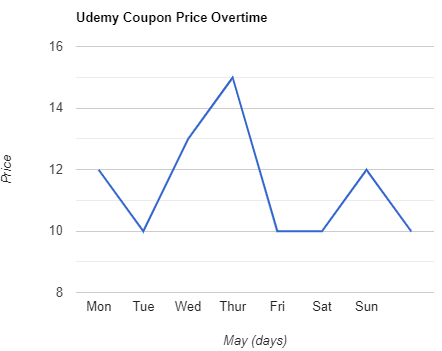CS 178 Digital Photography
This course takes a deep look at techniques that optimize digital photography tools. It covers exposure, angles, lighting, chromaticity and more. Students who complete this course will be equipped to take high-quality photographs in a wide range of settings.
Created by: Marc Levoy
Produced in 2016
 Quality Score
Quality Score
Overall Score : 0 / 100
 Live Chat with CourseDuck's Co-Founder for Help
Live Chat with CourseDuck's Co-Founder for Help
 Course Description
Course Description
 photography Awards Best Free Course
photography Awards Best Free Course
This course is based on CS 178 (Digital Photography), which I taught at Stanford from 2009 through 2014. I revised and taught the course again at Google in Spring of 2016, and these web pages are from the Google version. The course consists of 18 lectures. The topics, with dates, are given in the course schedule. The lectures were delivered live on Google's Mountain View campus, broadcast live to Google offices around the world, and recorded for later playback. The videos linked into these web pages are from those recordings, edited slightly to remove discussion of Google internal projects. Keynote slides from these lectures were converted to PDF files and linked into the schedule after each lecture.
I am making these materials freely available, but some of the photographs included in the lectures are individually copyrighted. It should be fine for teachers to re-use this material under fair use, but other uses may be protected. If you re-use the material in substantially the same form it is given here, I would appreciate an acknowledgement.
 Pros
Pros
 Cons
Cons
-
- Teaches timeless techniques to capturing great photographs.
- Assignments give students real-world practice at taking the pictures.
- The tapestry of knowledge allows students to explore their own ideas in advancing their photography skills.
-
- Course has not been changed since it was designed in 2016. While some concepts are universal, photographic technology is progressing quickly.
- Course seriously neglects photographic software, considering its a digital class.
- Course spends time on equipment that is in some cases dated.
 Instructor Details
Instructor Details

- 0.0 Rating
 0 Reviews
0 Reviews
Marc Levoy
Marc Levoy is the VMware Founders Professor of Computer Science (Emeritus) at Stanford University and until 2021 a Distinguished Engineer in Google Research. In previous lives he worked on computer-assisted cartoon animation (1970s), volume rendering (1980s), 3D scanning (1990s), light field imaging (2000s), and computational photography (2010s). At Stanford he taught computer graphics, digital photography, and the science of art. At Google he launched Street View, co-designed the library book scanner, and led the Google Research team that created HDR+, Portrait Mode, and Night Sight for Pixel smartphones. Awards: Cornell University Charles Goodwin Sands Medal for best undergraduate thesis (1976), National Science Foundation Presidential Young Investigator (1991), ACM SIGGRAPH Computer Graphics Achievement Award (1996), ACM Fellow (2007). His Google team's software for Pixel phones won DP Review Innovation of the Year (2017 and 2018) and Smartphone Camera of the Year (2019), Mobile World Congress Disruptive Device Innovation Award (2019), and other awards.




